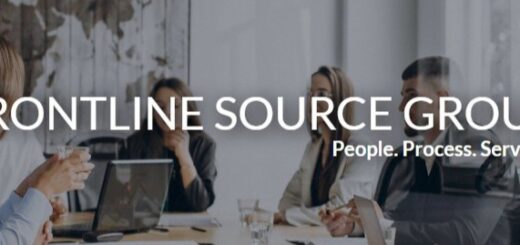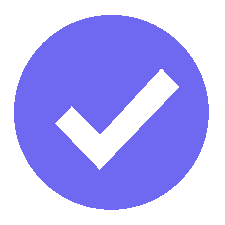Remote Leadership Assessment: Video Platforms That Reveal Executive Quality
It is impossible to overestimate the importance of remote leadership assessment in the fast-paced, constantly-changing business environment of today. With more & more companies adopting remote work, it is now critical to assess leadership skills remotely. I’ve learned that being an effective leader involves more than just managing teams in person; it also entails knowing how to encourage, inspire, and direct teams virtually. We are currently hiring for various positions in our company.
Key Takeaways
- Remote leadership assessment is crucial for identifying and developing effective leaders in a virtual work environment.
- Video platforms offer advantages such as flexibility, accessibility, and the ability to assess non-verbal communication for executive quality assessment.
- Key features to look for in remote leadership assessment video platforms include security, ease of use, customization, and integration with other assessment tools.
- Top video platforms for remote leadership assessment include Zoom, Microsoft Teams, Google Meet, BlueJeans, and Webex.
- Best practices for conducting remote leadership assessment using video platforms include setting clear objectives, providing training for assessors, and ensuring a reliable internet connection for all participants.
By identifying their leaders’ strengths and shortcomings, remote leadership assessments help organizations make sure their leaders are prepared to handle the challenges of working remotely. In addition, remote leadership evaluation is essential for developing a continuous improvement culture. Regularly assessing the effectiveness of leadership enables organizations to offer focused feedback and opportunities for growth. In addition to improving individual performance, this also helps the organization as a whole.
I have personally witnessed how businesses that place a high priority on leadership evaluation are better equipped to spur innovation, adjust to change, and keep workers engaged—even under trying conditions. Benefits of Executive Quality Assessment with Video Platforms: There are many benefits to using video platforms for executive quality assessment that are just not possible with traditional assessment techniques. The ability to watch leaders in action, no matter where they are physically located, is among the biggest advantages. I believe that video tests offer a special chance to assess body language, communication abilities, and general presence—aspects that are frequently overlooked in written assessments or phone interviews.
This visual element enables a more thorough comprehension of a leader’s potential. Also, real-time interaction and feedback are made possible by video platforms. I like how these tools let assessors interact with leaders in real time or via recorded sessions, facilitating prompt clarification and in-depth analysis of leadership philosophies. In a way that static assessments are unable to capture, this dynamic interaction encourages leaders to present their authentic selves, resulting in a more authentic assessment experience. CEOs’ hectic schedules can be accommodated by conducting assessments more frequently and flexibly thanks to the convenience of video platforms.
Important Features to Consider in Video Platforms for Remote Leadership Assessment There are a few features that I think are crucial to a successful evaluation process when choosing a video platform for remote leadership assessment. The platform should, above all, have excellent audio and video features. During assessments, it is essential to communicate clearly, and any technical difficulties may make the experience less enjoyable. I now know that the quality of interactions and evaluations can be greatly improved by investing in a reputable platform.
The option to record sessions for later review is another crucial feature. Assessors can use this functionality to go back over conversations and examine particular instances that might merit more thought. Access to recorded sessions, in my opinion, not only makes it easier to give thorough feedback, but it also acts as a useful tool for leaders looking to advance their careers. A seamless and secure evaluation process also depends on having user-friendly interfaces and strong security features.
Leading Video Platforms for Remote Leadership Evaluation As I look into the various video platforms that are appropriate for remote leadership evaluation, a few options jump out at me because of their special qualities and functionalities. One of the most well-known platforms is Zoom, which provides both recording and high-quality video conferencing. It is a great option for conducting assessments because of its user-friendliness and ease of use.
Microsoft Teams is another notable platform that easily integrates with other Microsoft programs. The collaboration between assessors and leaders is improved by this integration, which makes it simple to share documents and resources during assessments. Teams is a dependable choice for businesses worried about data privacy because it also has strong security features. Platforms such as HireVue cater exclusively to video interviews and assessments for individuals looking for a more specialized solution. HireVue offers customized tools that can improve the assessment process, including features for assessing candidates’ soft skills and leadership attributes.
When choosing the best tool for remote leadership assessment, I think organizations should carefully consider their unique needs, as each of these platforms has advantages. Best Practices for Using Video Platforms to Conduct Remote Leadership Assessments I have found a number of best practices that can greatly improve the process and increase the efficacy of remote leadership assessments used with video platforms. The most important thing is to be prepared.
Before the assessment starts, assessors should create precise evaluation criteria and guidelines. This guarantees that leaders and assessors are aware of the expectations for the session, which promotes a more concentrated and fruitful dialogue. Establishing a welcoming atmosphere for leaders during evaluations is another excellent practice. I’ve discovered that more genuine interactions can result from building rapport & trust.
Throughout the session, assessors should promote candid conversation and offer helpful criticism. Incorporating scenario-based questions or role-playing exercises can also assist assessors in determining how leaders handle real-world problems, offering insightful information about their decision-making procedures. Overcoming Obstacles in Video Platforms for Remote Leadership Assessment Although video platforms for remote leadership assessment have many benefits, they also present certain difficulties.
The possibility of technical issues during assessments is one frequent problem I have run into. I advise testing the technology before administering the tests to make sure everyone is at ease with it & to reduce this problem. This proactive strategy can assist in spotting any possible problems before they interfere with the evaluation procedure. Sustaining interest during online tests presents another difficulty.
Participants may easily become sidetracked or disinterested when interacting via a screen, I’ve found. In order to counteract this, assessors should use interactive strategies like surveys or breakout talks to keep leaders engaged in the discussion. Assessors can guarantee that they obtain significant insights into leadership abilities by creating an engaging environment. Including Remote Leadership Assessment in Organizational Development Fostering a culture of development and progress requires incorporating remote leadership assessment into an organization’s larger development plan. Organizations ought to consider leadership evaluation as a continuous procedure as opposed to a one-time occurrence, in my opinion.
Regular evaluations can be incorporated into performance management systems to help organizations establish an ongoing feedback loop that aids leaders in their personal growth. It’s also critical to match leadership evaluations with organizational objectives. When organizations link leadership development programs to their strategic goals, I’ve seen them succeed more. The ability of leaders to propel organizational success in addition to their own performance is assessed thanks to this alignment.
Businesses can create a pool of capable leaders who are equipped to handle new challenges by incorporating remote leadership assessment into organizational development initiatives. Future Directions in Remote Leadership Assessment: Executive Quality and Video Platforms As I consider the future of remote leadership assessment, a number of trends are beginning to take shape that will influence how businesses use video platforms to assess executive quality. The growing application of artificial intelligence (AI) in evaluation procedures is one noteworthy trend. Video interactions can be analyzed by AI-driven tools to reveal information about emotional intelligence, communication styles, and other crucial leadership qualities.
This technology, in my opinion, will improve the impartiality and precision of evaluations while allowing assessors to concentrate on qualitative input. Diversity and inclusion are becoming increasingly important in leadership evaluations, which is another trend. The significance of assessing leaders using a lens that takes into account a range of viewpoints and experiences is becoming increasingly apparent to organizations. I believe that as video platforms develop, they will include features that support inclusive evaluations, like frameworks for assessing diverse leadership styles or tools for detecting bias. In conclusion, organizations have a rare chance to assess executive quality efficiently through remote leadership assessment utilizing video platforms.
I think businesses can develop strong leaders who are prepared to succeed in an increasingly remote work environment by appreciating its significance, utilizing technology, and putting best practices into practice. In order to keep leadership assessments current and influential in influencing the nature of work in the future, it will be crucial to adopt new trends as we go.
A related article to Remote Leadership Assessment: Video Platforms That Reveal Executive Quality is “Networking Your Way Into a New Job” by Bill Kasko from Frontline Source Group. This article discusses the importance of networking in finding a new job and offers valuable tips on how to effectively network to advance your career. To read more about this topic, visit here.
FAQs
What is remote leadership assessment?
Remote leadership assessment is the process of evaluating an individual’s leadership qualities and skills using video platforms and other remote tools. This allows organizations to assess and develop their leaders without the need for in-person interactions.
Why is remote leadership assessment important?
Remote leadership assessment is important because it allows organizations to evaluate and develop their leaders regardless of their location. It also provides a more flexible and convenient way to assess leadership qualities, especially in today’s remote work environment.
What are video platforms used for remote leadership assessment?
Video platforms such as Zoom, Microsoft Teams, and Skype are commonly used for remote leadership assessment. These platforms allow for virtual interviews, presentations, and other interactions that can reveal an executive’s quality and leadership skills.
How do video platforms reveal executive quality?
Video platforms reveal executive quality by allowing assessors to observe an executive’s communication skills, decision-making abilities, and overall presence. These platforms also enable assessors to gauge how well an executive can engage and lead a remote team.
What are the benefits of using video platforms for remote leadership assessment?
Using video platforms for remote leadership assessment offers benefits such as cost savings, time efficiency, and the ability to reach a wider pool of candidates. It also provides a more inclusive and accessible way to assess leadership qualities.





